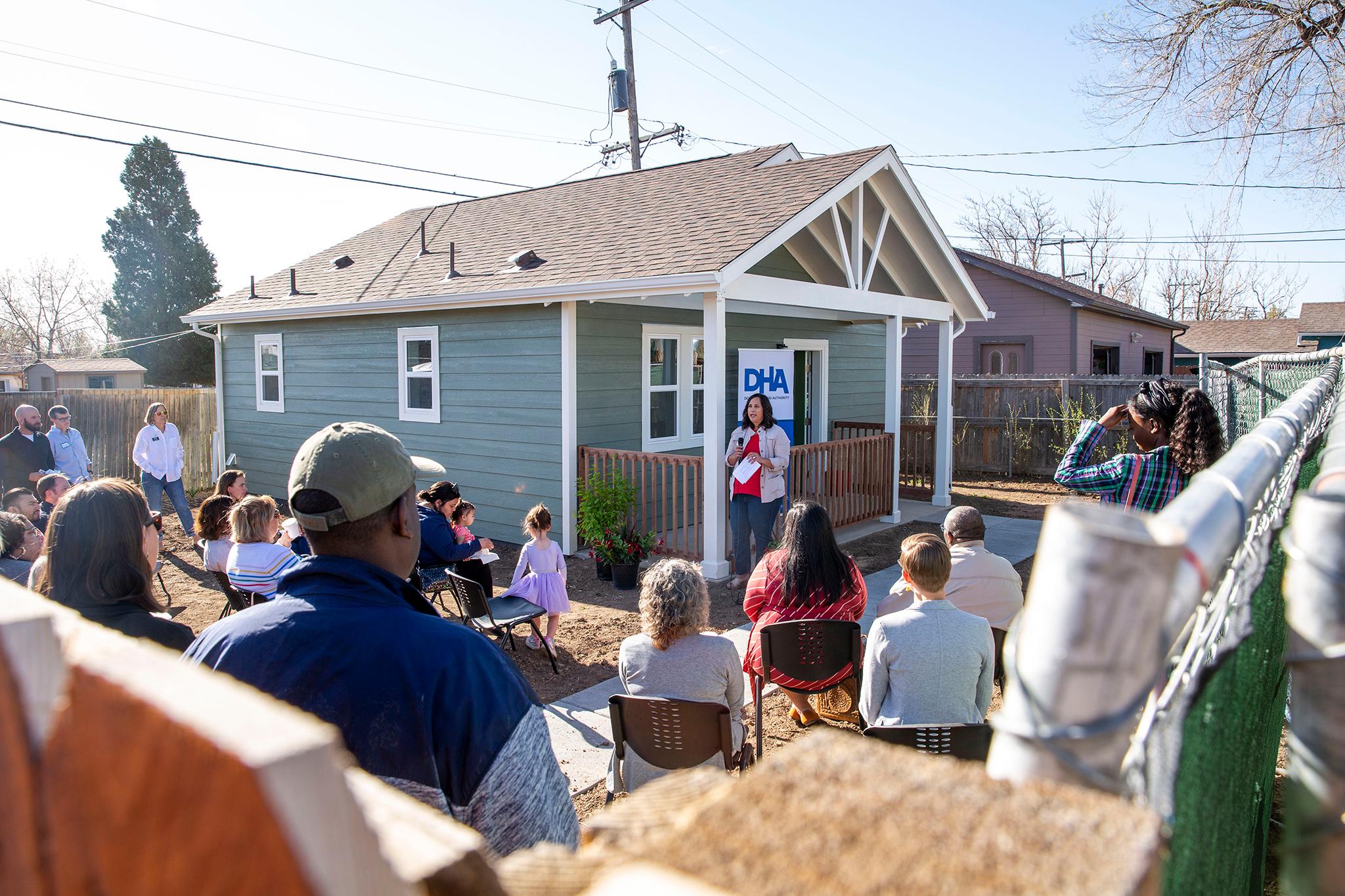It will be easier to build accessory dwelling units, or ADUs, for property owners across the city if the Denver City Council approves a set of new proposals.
The three proposals would remove legal barriers for ADUs in all residential areas of Denver, and the council is expected to take final votes on the changes next month.
The local proposals come in response to House Bill 1152, a new state law that requires dozens of large Colorado cities to allow more ADU construction. Supporters say the changes will allow for "gentle density" to be added in existing neighborhoods.
All of the affected cities, including Denver, must be in compliance with the new law by June 30, 2025.
Denver could make changes in November
The council’s Land Use, Transportation, and Infrastructure Committee voted on Oct. 8 to advance bills 24-1302, 24-1303 and 24-1304. The changes make ADUs an allowable use of land across the city’s single-family residential neighborhoods, and they also eliminate certain requirements for how ADUs are built and used.
The full council will consider the changes on Oct. 21. Then, on Nov. 18, council members will hear public comment on the issue before voting on the measures.
The committee members pushed the local proposals forward after hearing from Justin Montgomery, a senior planner with the city’s Community Planning and Development department. He said changes would benefit lower-income people by introducing new housing options to existing neighborhoods.
“It will reduce vulnerability to displacement by allowing existing property owners to remain in their homes while reinvesting in their properties and make construction of ADUs a more feasible option for Denverites which expands housing and job diversity,” Montgomery said during the committee meeting.

A new housing option?
No one spoke in opposition at the committee hearing, but both sides will have another chance to speak up before the final council vote. In the past, rezoning for ADUs has raised concerns from some residents about more competition for on-street parking, as well as general resistance to change.
“I chose not to live in Congress Park or Cap Hill because of the street parking. Why does my neighborhood have to change to accommodate housing?” one resident wrote to the city, though many other comments were supportive.
Supporters promote ADUs as a way to add new housing to existing neighborhoods at a somewhat lower cost. ADUs are small backyard homes, also known as mother-in-law suites, casitas or carriage houses. They also can include residences that are attached to existing homes, such as basement apartments.
“Great to see Denver seriously considering ADUs city-wide. The patchwork neighborhood-by-neighborhood process feels overly cumbersome for a housing solution that should be available to everyone,” another commenter told the city.
A study by former Denver council member Robin Kniech shows ADUs are often used by family members helping seniors or people with disabilities who need in-home care.
Kniech also found that ADUs can provide a cheaper rental option. In several California cities, ADUs were often affordable for couples making under 80 percent of the area median income, or roughly $72,000 in the Denver area.
What exactly is proposed for Denver ADUs?
The proposed changes to Denver’s zoning code would allow homeowners to build ADUs without as many restrictions. Under the revised law:
- ADU owners would not be required to live on the property, eliminating “owner occupancy” requirements. They would still have to live on the property at the time they apply for the ADU permit, but they could move out later while still keeping the ADU in place.
- ADUs would be allowed in all single-family residential zone districts where they are not already permitted.
- It will be easier to build an ADU in a newly developed area. Adding an ADU would no longer require amending the site development plan itself — as long as the new unit doesn't add to the footprint of the buildings on the site.
- The Denver Zoning Code would be simplified by deleting 16 zone districts whose sole purpose is to allow ADUs.
Kniech’s study showed that more ADUs were built or approved when other states, such as California and Oregon, made similar changes.
One sticking point that could affect Denver’s compliance with the state law has to do with setbacks that define the required distance between an ADU and the property line.
In some neighborhoods, the city wants to keep setbacks at 25 feet from the end of the property, but the state generally doesn’t want cities to create setback requirements of more than 5 feet.
The city argues that smaller setbacks wouldn’t work for areas with alleys that residents use to get around their neighborhoods. Council plans to ask state lawmakers to consider this issue in the 2025 legislative session.

ADUs are still expensive
Denver has issued 548 permits for ADUs since 2016, when the city began collecting this data; of those, 394 have been completed. So far in 2024, there have been 112 ADU residential construction permits opened. That number includes those issued and those still in progress.
The city had already rezoned several areas to allow for more ADUs, but it hasn’t yet resulted in a lot of new construction. Part of the reason may be that building an ADU can cost hundreds of thousands of dollars.
The new state law applies to all cities with a population of more than 1,000 that are also part of a metropolitan planning organization, or MPO. A total of 67 towns and cities are subject to the law, including dozens along the Front Range, as well as Grand Junction and some nearby municipalities.
Questions and thoughts on ADUs in Denver? Email [email protected]













